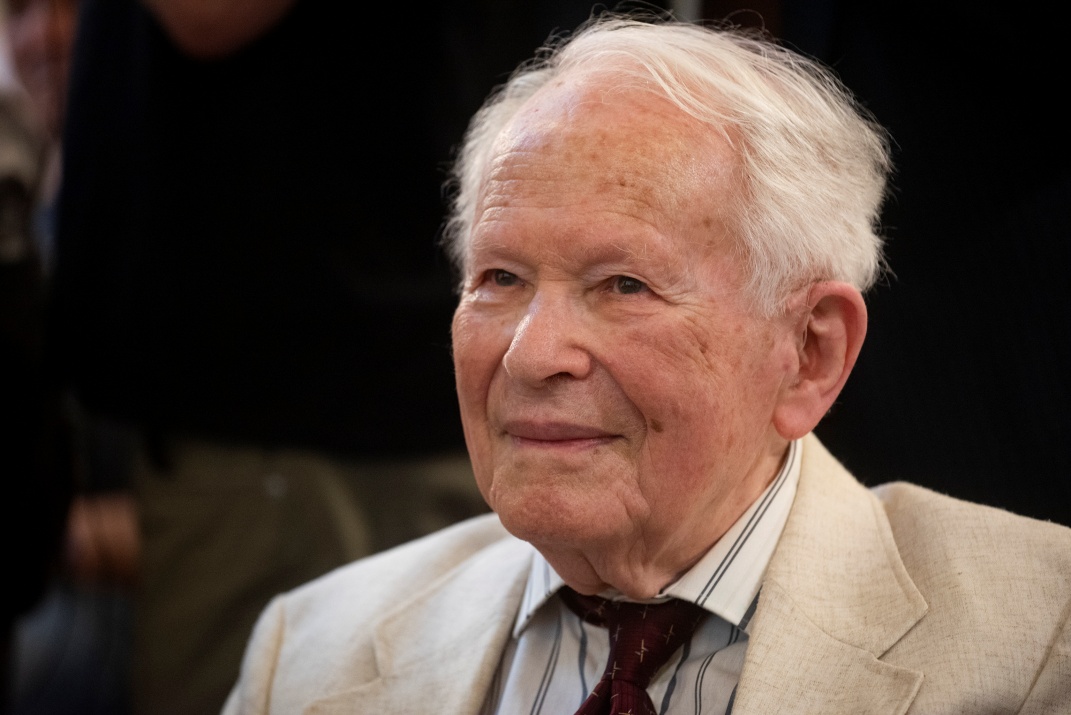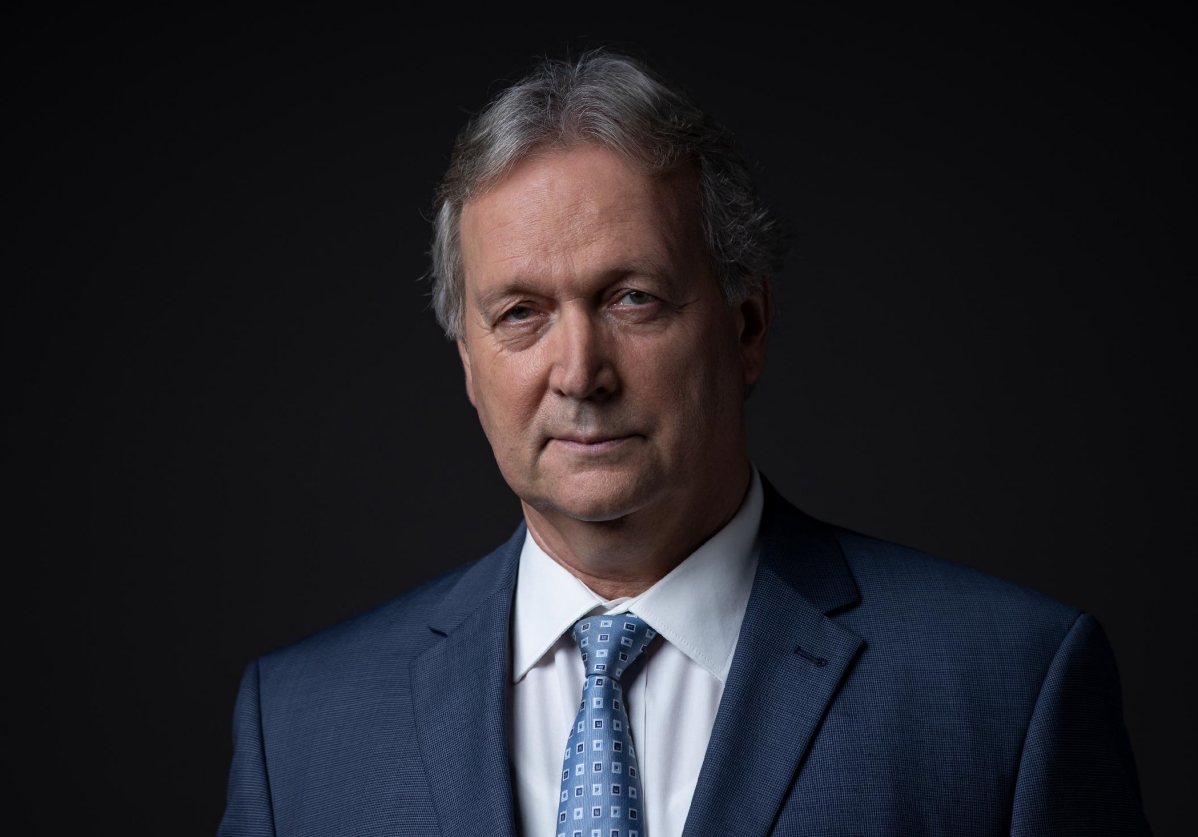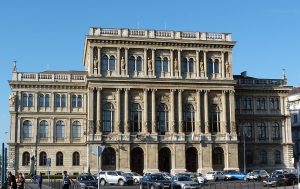
The "Big Five" is comprised of mathematicians János Aczél, Ákos Császár, László Fuchs, István Gaál, and János Horváth.Continue reading

The President of the Hungarian Academy of Sciences (MTA), Tamás Freund, has steered the venerable institution through a radical reform not seen since the fall of the Iron Curtain. In an exclusive interview for Hungary Today, he offers us a unique insight into the direction in which the Academy is evolving, and shares his thoughts on the effort to preserve its relevance and independence amid political turmoil in Europe.
Before you became the head of MTA, you were known in the field as a highly acclaimed neurobiologist. It is not quite the fashionable profession today. At what point in your personal career did you say: “this is what I want to be”?
I decided relatively early, in my third year of high school, that I wanted to be a brain scientist. I had an excellent biology teacher and a third-year biology textbook that vividly described the amazing and complex world of neurons and their networks. I graduated in biology from Eötvös Loránd University, but from my second year on, I was a student researcher in Prof. János Szentágothai’s research group, under the supervision of Péter Somogyi. My early decision has been vindicated many times over; as a high school student, I would have never even dreamed that the world of science would be so exciting. I pursued my exploration of the mysteries of the brain at Oxford University, a bastion of science which I was able to attend with the help of my mentors at the age of 22. Besides my personal motivation, it also took some luck to get my career off to such a flying start.
Most scientists and researchers naturally shy away from administrative and management tasks, preferring to focus on science whenever they can. How do you, as a scientist, bridge this dichotomy? Do you still find some time for research while managing MTA?
As MTA Vice President, I still had some time for research, although I was also the head of the Institute of Experimental Medicine. But being President of MTA demands a whole person, especially in today’s perpetually changing world. The Academy has been undergoing major transformations, which has imposed constant demands on all elected leaders and secretariat staff. Of course, I miss keeping an eye on daily research work, but I knew what I was taking on.
I felt that I would be able to help the Academy get through this critical period, I could smooth out relations with decision-makers and we could open up to society.
Could you explain it to our foreign readers in what respects the new role of MTA differs from the one in the past?
In addition to the Academy’s routine science management, funding, advocacy, quality assurance, and science policy functions, which it will, of course, continue to perform, we have strengthened our programs that rely on the whole public body. As advisers to the nation, we are open in two directions: we are glad to play a role in the scientific preparation of government decision-making, but also to provide science advice to a wide spectrum of society to help them navigate the flood of uncontrolled, often pseudo-scientific and misleading information on social media. We are also trying to reach out to young people, including through our MTA High School Alumni Program, in an effort to acquaint them with the methodology and beauty of science, the joy of discovery, so that they would believe scientists rather than self-proclaimed “expert influencers.” Indeed, the around 3,000 researchers working in the HUN-REN Hungarian Research Network are no longer directly subordinated to the Academy, but they are still part of the 19,000-strong MTA Public Body we rely on to perform these comprehensive tasks.

The building of the Hungarian Academy of Sciences. Photo: Wikipedia
According to some, the current EU leadership is trying to isolate Hungary and its institutions in order to gain political concessions. The exclusion from the Erasmus and Horizon programs has also affected researchers. Do you feel any sort of distancing on the part of MTA’s foreign partners, and how is your institution adapting to the changed external circumstances?
The Academy feels responsible for the future of the whole of domestic academia and has thus been following recent developments with concern. I think it is extremely unfair that the exclusion imposed by the European Commission has primarily afflicted students and young researchers, putting their scientific careers at risk and accelerating the brain drain, while EU officials are claiming the opposite. They are apparently looking for ways to help more Central and Eastern European researchers win European Research Council (ERC) grants and perform better in Horizon Europe calls in general, and yet, they are excluding Hungarian host institutions from the program.
We have written several letters to the President and members of the European Commission calling for this sanction to be lifted.
This discrimination does not only affect public trust foundation universities: it also casts a shadow on all Hungarian research centers, since it has become common practice in Europe that chances of winning a call are reduced if the consortium also includes a Hungarian research group.
In a globalized world, the preferred or even exclusive use of English in professional publications is a given. But one of your institutional tasks is to cultivate Hungarian as the language of science. How do you intend to counter the marginalization of the national language in scientific discourse so that current and future generations of researchers –like the much-talked-about Hungarian “Martians,” the Hungarian Nobel laureates of the 20th century – could benefit from the expressive power and abstraction of their mother tongue?
In accordance with poet János Arany’s wishes, the Academy has always considered itself a “language cultivating” society as well as one that would cultivate sciences in Hungarian – a mission also confirmed in the solemn declaration of this year’s General Assembly. Prior to this, a discussion forum for members of MTA’s public body and a General Assembly report had summed up the Academy’s varied activities and tasks related to the Hungarian language. Its objectives are, among others, to create a database of Hungarian historical toponyms, provide digital support for the Hungarian mother tongue and scientific terminology, achieve a tenfold increase in the corpus of the Hungarian National Text Repository to one billion words, revamp the spelling advisory portal, identify fake news and pseudo-scientific opinions on a linguistic level, and harmonize the language of education in the Carpathian Basin.
In fact, the biggest threat faced by our mother tongue is not extinction, but that it would be forced out of the digital space for lack of technological support.
English has a special role in science. The mission of the Academy to preserve the Hungarian language and the aspirations of Hungarian researchers for international cooperation and competitiveness cannot be set against each other. The example of János Neumann and his colleagues shows that the originality of our thinking and our creativity, which can be traced back to the characteristics of our mother tongue, does not get lost even in a foreign language environment.
According to the founder of the institution, István Széchenyi, “only institutions that move closely within their own boundaries can attain their full flowering.” On the other hand, even an institution with such a long history as MTA, celebrating its bicentenary in 2025, must constantly reinvent itself in the face of political change to maintain its social and systemic relevance. What is your take on addressing the issue of institutional boundaries and competences? Is there any way to expand or redefine them?
The mission of the Academy has both permanent and changing components. Its identity is defined by the fact that it was not created by secular or ecclesiastical dignitaries, but by representatives of the nation. Its legitimacy derives from the nation just as much as from political power. That is why it is our continuous duty to work on turning the results of science to the benefit of the Hungarian people.
The constant need for renewal stems from our obligation to do so in response to the changes in the nation, and the global, natural, and social environment, as well as in science and technology.
The mission and competence of the Academy are circumscribed by the geographical location of the Hungarian nation and the Hungarian research community. Both stretch beyond the present-day administrative boundaries of the country. It is with this in mind that we shape our organization, our operations, our scientific programs, and our support system. The Academy’s 19,000-strong public body includes Hungarian and external members, as well as Hungarian academics from the Carpathian Basin and from many scientific centers around the world. The researchers working at universities, research institutes, and industrial innovation research centers are all equally important to us. This is reflected in the convergence of the rights of national and external members, and the extension of our national programs, the Hungarian Science Festival (MTÜ), and the Alumni Program beyond our borders, as well as in our preparations for the joint celebration of our bicentenary with the Library and Information Center of the Hungarian Academy of Sciences. Our relations with the political entities and the government rest on the cornerstones of preserving public trust, mutual respect, cooperation within a jointly agreed framework, and mutual support for each other’s mission.
Featured Image: MTA